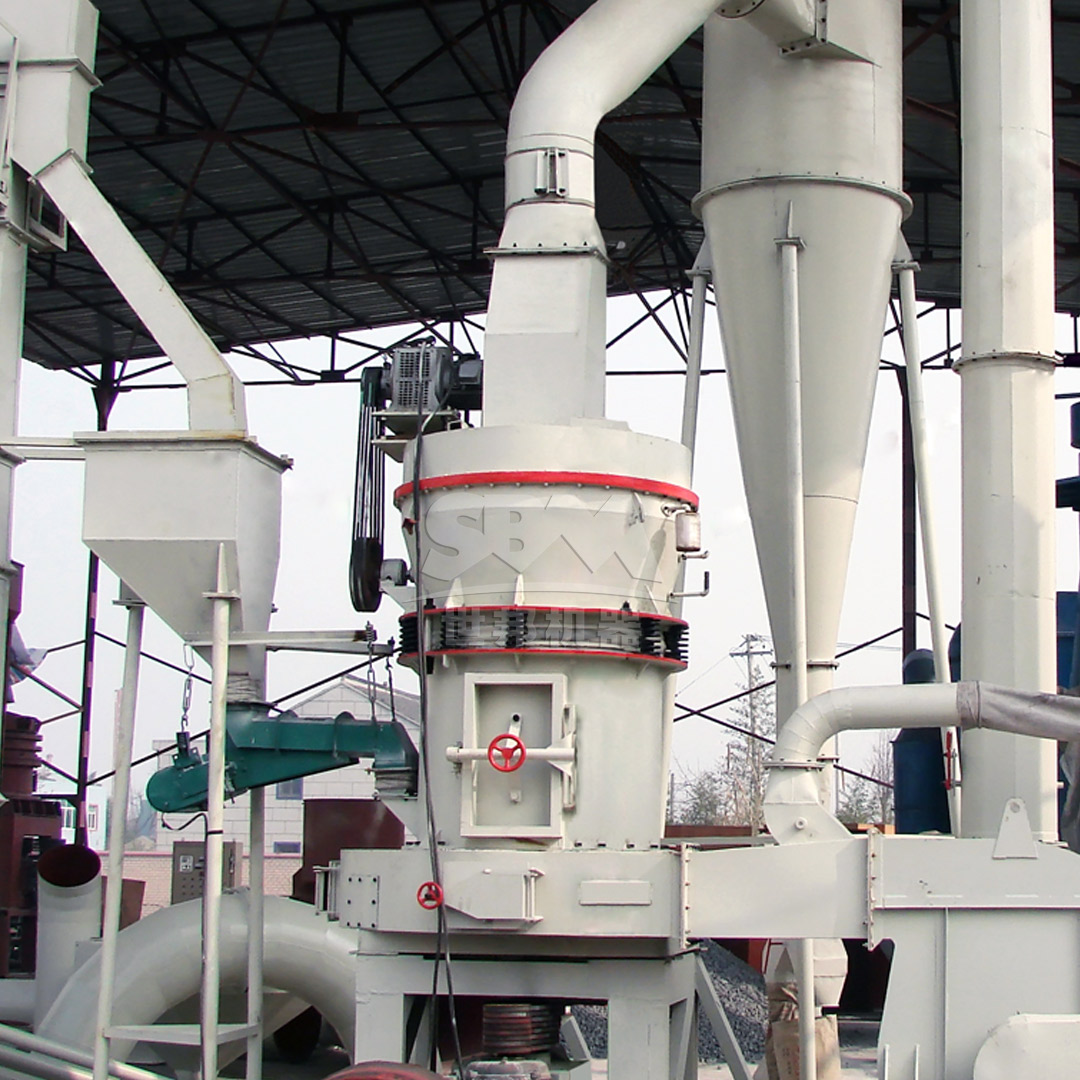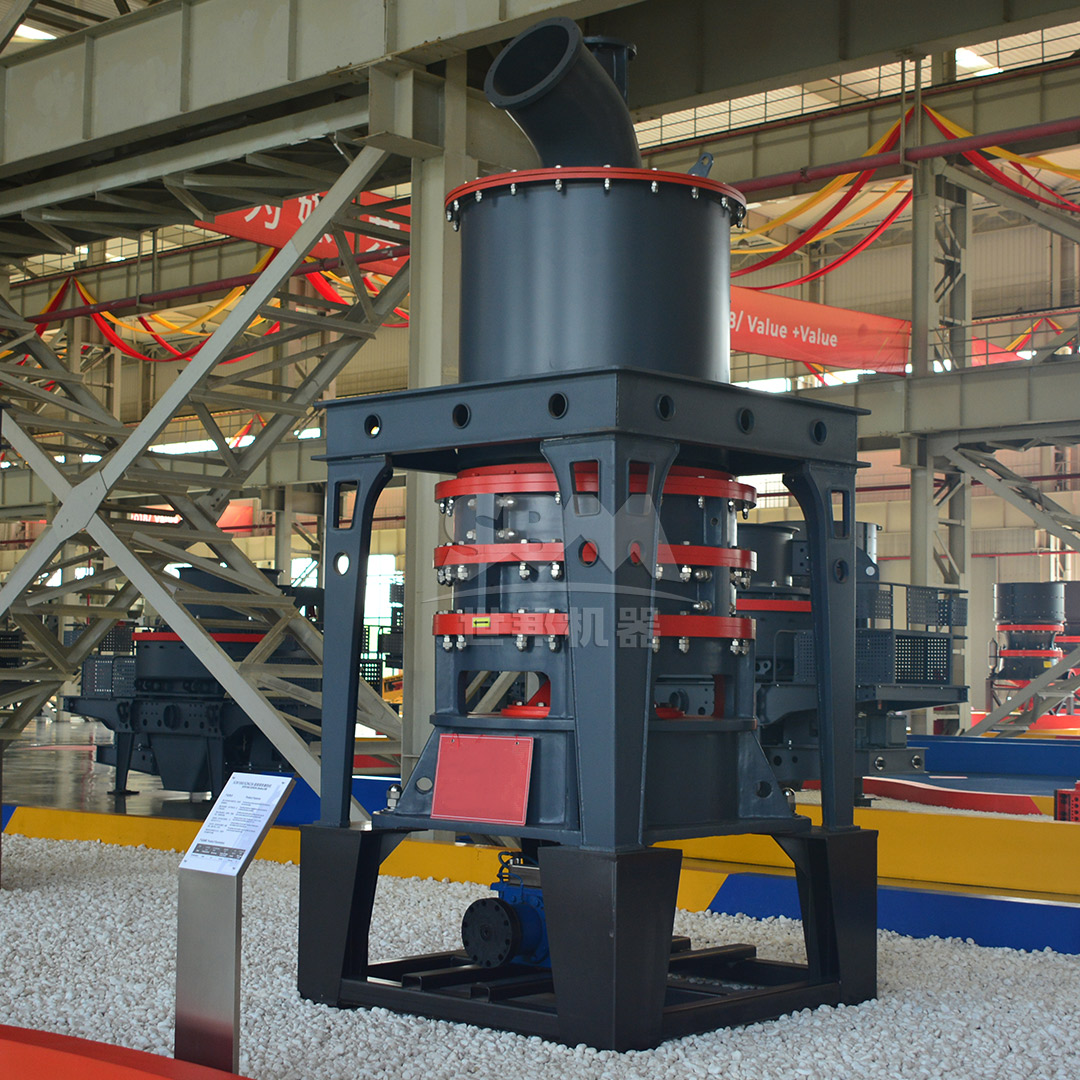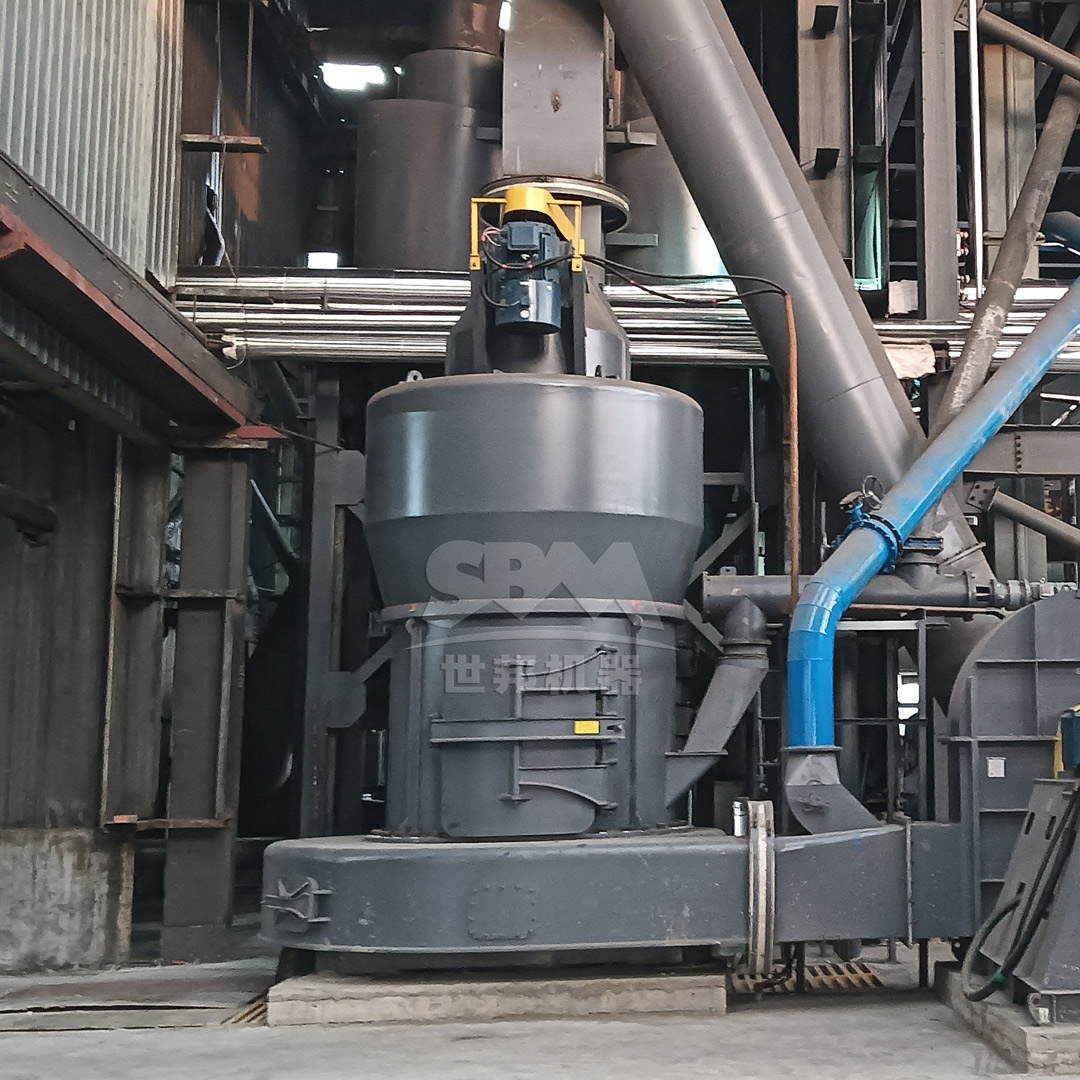Kaolin, a naturally occurring hydrated aluminum silicate clay mineral, has become an indispensable ingredient in high-end cosmetic formulations. Its unique properties – including excellent oil absorption, gentle exfoliation, smooth texture, and skin-adhering capabilities – make it particularly valuable in products such as foundations, powders, masks, and blushes. The cosmetic industry’s stringent requirements for purity, consistency, and particle size distribution demand specialized grinding technology capable of producing ultra-fine kaolin powders with precisely controlled characteristics.
The transformation of raw kaolin into cosmetic-grade powder represents a significant technological challenge. Conventional grinding equipment often fails to meet the exacting standards of particle size uniformity, color preservation, and contamination control required by premium cosmetic manufacturers. This article explores the advanced milling technologies specifically engineered to address these challenges, with particular focus on equipment capable of producing kaolin powders in the critical 45-5μm range.

The production of kaolin for cosmetic applications involves multiple critical parameters that directly impact final product performance. Particle size distribution, specifically the D97 value (indicating that 97% of particles are below a specified size), must be tightly controlled to ensure optimal coverage, texture, and skin feel. For most cosmetic applications, the target D97 ranges from 5μm to 45μm, with ultra-fine formulations requiring even smaller particle sizes.
Beyond particle size, cosmetic kaolin must maintain brilliant whiteness (typically >90% ISO brightness), exhibit consistent viscosity in suspensions, and be entirely free of contaminants that could cause skin irritation. The grinding process must preserve the natural platelet structure of kaolin, which contributes to its smooth application and coverage properties. Additionally, the equipment must operate under strict hygienic conditions to prevent microbial contamination or introduction of metallic impurities from wear parts.
For producing the finest kaolin powders required by premium cosmetic manufacturers, specialized ultra-fine grinding mills offer distinct advantages over conventional equipment. These advanced systems combine precise mechanical grinding with sophisticated air classification to achieve narrow particle size distributions in the 325-2500 mesh range (approximately 45-5μm).
Among the most effective solutions for cosmetic kaolin production is the SCM Ultrafine Mill, which represents the cutting edge in ultra-fine grinding technology. This system operates on a unique principle where material is fed into the grinding chamber and subjected to multiple grinding stages between rollers and grinding rings. The integrated classifier ensures that only particles meeting the target size proceed to collection, while oversize material is returned for further grinding.
The SCM Ultrafine Mill offers several critical advantages for cosmetic kaolin production. With an output fineness range of 325-2500 mesh (D97≤5μm) and capacity from 0.5 to 25 tons per hour depending on model, it provides the flexibility needed for both specialized boutique production and large-scale manufacturing. Its energy efficiency – offering approximately 30% lower energy consumption compared to jet mills while delivering twice the production capacity – makes it economically viable for premium applications.

The production of cosmetic-grade kaolin demands specific technological features that ensure product quality and consistency:
| Technical Feature | Importance for Cosmetic Kaolin | Implementation in Advanced Mills |
|---|---|---|
| High-Precision Classification | Ensures uniform particle size distribution for consistent product performance | Vertical turbine classifiers with adjustable rotor speed |
| Contamination Control | Prevents introduction of impurities that could cause skin irritation | Special wear-resistant materials for grinding components |
| Temperature Control | Preserves kaolin’s natural structure and brightness | Integrated cooling systems and low-heat generation design |
| Hygienic Operation | Meets cosmetic industry standards for product purity | Full sealing, easy-clean surfaces, and sanitary design |
Modern grinding systems address these requirements through innovative engineering solutions. For instance, the vertical turbine classification system found in advanced mills enables precise cut-point control, ensuring that the final product contains no oversized particles that could compromise texture. Meanwhile, the use of special alloy materials for grinding rollers and rings minimizes metallic contamination while extending component life.
For cosmetic manufacturers requiring the highest quality kaolin powders, the SCM Series Ultrafine Mill represents an ideal solution. This equipment has been specifically engineered to meet the demanding requirements of ultra-fine powder production with several distinctive advantages:
Technical Superiority: The SCM Ultrafine Mill incorporates a vertical turbine classification system that enables precise control over particle size distribution. This ensures consistent D97 values down to 5μm, with the capability to produce powders in the 325-2500 mesh range. The intelligent control system automatically monitors and adjusts operational parameters to maintain target fineness despite variations in feed material characteristics.
Operational Efficiency: With energy consumption approximately 30% lower than conventional jet mills and twice the production capacity, the SCM series offers significant economic advantages. The robust design features specially hardened grinding components that withstand the abrasive nature of kaolin while maintaining product purity. The absence of bearings in the grinding chamber eliminates a potential source of contamination while enhancing operational stability.
Environmental Performance: Cosmetic manufacturing facilities often operate under strict environmental regulations. The SCM Ultrafine Mill addresses this through a pulse dust collection system that exceeds international standards for emissions control. Additionally, the integrated soundproofing technology maintains noise levels below 75dB, creating a better working environment while meeting regulatory requirements.
| Model | Processing Capacity (ton/h) | Main Motor Power (kW) | Output Fineness (mesh) | Recommended Application |
|---|---|---|---|---|
| SCM800 | 0.5-4.5 | 75 | 325-2500 | Small batch premium cosmetics |
| SCM1000 | 1.0-8.5 | 132 | 325-2500 | Medium scale production |
| SCM1250 | 2.5-14 | 185 | 325-2500 | Large volume manufacturing |
| SCM1680 | 5.0-25 | 315 | 325-2500 | Industrial scale operations |
For cosmetic applications requiring slightly coarser kaolin powders or operations that process multiple mineral types, the MTW Series Trapezium Mill offers an excellent balance of performance and versatility. With an output range of 30-325 mesh (approximately 600-45μm), this equipment handles a wider variety of material feed sizes while maintaining high efficiency.
The MTW series incorporates several innovative features particularly beneficial for kaolin processing. The curved air channel design reduces airflow resistance and improves transmission efficiency, while the combined shovel blade configuration minimizes maintenance requirements. The conical gear integral transmission system achieves 98% transmission efficiency, reducing energy consumption and installation costs.
With capacities ranging from 3 to 45 tons per hour across different models, the MTW series accommodates various production scales. The wear-resistant volute structure and internal oil lubrication system ensure long-term reliability with minimal maintenance interventions, making it suitable for continuous operation in demanding cosmetic manufacturing environments.

Consistent particle size distribution represents one of the most critical quality parameters for cosmetic kaolin. Modern grinding mills incorporate real-time monitoring systems that track particle size during operation, allowing for immediate adjustments to maintain product specifications. Laser diffraction analysis provides the most accurate measurement of particle size distribution, with particular attention to the D50 and D97 values that determine product performance.
Advanced grinding systems like the SCM Ultrafine Mill feature integrated sampling ports that enable quality control personnel to extract representative samples without interrupting production. This allows for continuous verification that the product meets the stringent requirements of cosmetic applications, where even minor deviations in particle size can affect texture, coverage, and skin adhesion.
Kaolin intended for cosmetic applications must exhibit high brightness and color consistency across production batches. The grinding process must preserve the natural whiteness of kaolin, which can be compromised through contamination or excessive heat generation. Advanced milling equipment addresses this through several mechanisms:
Temperature control systems prevent overheating that could cause discoloration, while specialized wear materials minimize metallic contamination that might affect brightness measurements. Additionally, fully enclosed designs prevent the introduction of external contaminants during processing. Regular brightness testing using standardized methods (typically ISO brightness for kaolin) ensures consistent product quality.
When selecting grinding equipment for cosmetic kaolin production, manufacturers must consider the total cost of ownership rather than simply the initial investment. Advanced mills like the SCM series offer significant advantages in this regard through reduced energy consumption, lower maintenance requirements, and extended component life.
The energy efficiency of modern grinding technology translates to substantial operational savings, particularly for facilities running multiple shifts. Similarly, the use of specialized wear materials extends the service life of grinding components, reducing both replacement part costs and production downtime. When evaluated over a typical 5-year operational period, these factors often make advanced grinding systems more economical than apparently lower-cost alternatives.
The cosmetic industry demands production flexibility to accommodate seasonal variations, product launches, and changing market preferences. Grinding equipment must therefore offer the capability to adjust output parameters while maintaining product quality. The modular design of advanced mills allows for capacity expansion through model upgrades or the addition of parallel systems.
For growing cosmetic manufacturers, selecting equipment with scalability built into the design provides long-term operational advantages. The range of available models in series like SCM and MTW enables companies to start with appropriate capacity for current needs while planning for future expansion without requiring complete system replacement.
The cosmetic industry continues to evolve toward more sophisticated formulations that incorporate functionalized kaolin with enhanced properties. This includes surface-treated kaolin for improved dispersion, composite materials combining kaolin with other functional ingredients, and specially processed variants with optimized oil absorption characteristics.
Grinding technology must adapt to these changing requirements through enhanced classification precision, more flexible operational parameters, and compatibility with various surface modification processes. Equipment that can integrate grinding with subsequent functionalization steps offers significant advantages for manufacturers seeking to develop proprietary kaolin products with unique performance characteristics.
Environmental sustainability represents an increasingly important consideration throughout the cosmetic supply chain. Kaolin producers face growing pressure to minimize energy consumption, reduce water usage, and implement circular economy principles. Advanced grinding technology contributes to these goals through improved energy efficiency, reduced waste generation, and minimal environmental impact.
Future developments in kaolin grinding will likely focus on further enhancing sustainability metrics while maintaining or improving product quality. This includes the integration of renewable energy sources, advanced heat recovery systems, and closed-loop water management where applicable. Equipment manufacturers are increasingly designing with these considerations in mind, recognizing that environmental performance represents a competitive advantage in the modern cosmetic industry.
The production of high-quality kaolin for cosmetic applications demands precise, reliable, and efficient grinding technology capable of delivering ultra-fine powders with consistent characteristics. Advanced milling systems like the SCM Series Ultrafine Mill and MTW Series Trapezium Mill provide cosmetic manufacturers with the technological foundation needed to meet increasingly stringent quality requirements while maintaining economic viability.
As the cosmetic industry continues to evolve toward more sophisticated formulations and sustainable practices, grinding technology must similarly advance to address emerging challenges and opportunities. Equipment that combines precise particle size control, operational efficiency, and environmental responsibility will remain essential for producers seeking to compete in the premium cosmetic ingredients market. Through continued innovation and adaptation, kaolin grinding technology will support the development of next-generation cosmetic products that meet consumer expectations for performance, safety, and sustainability.